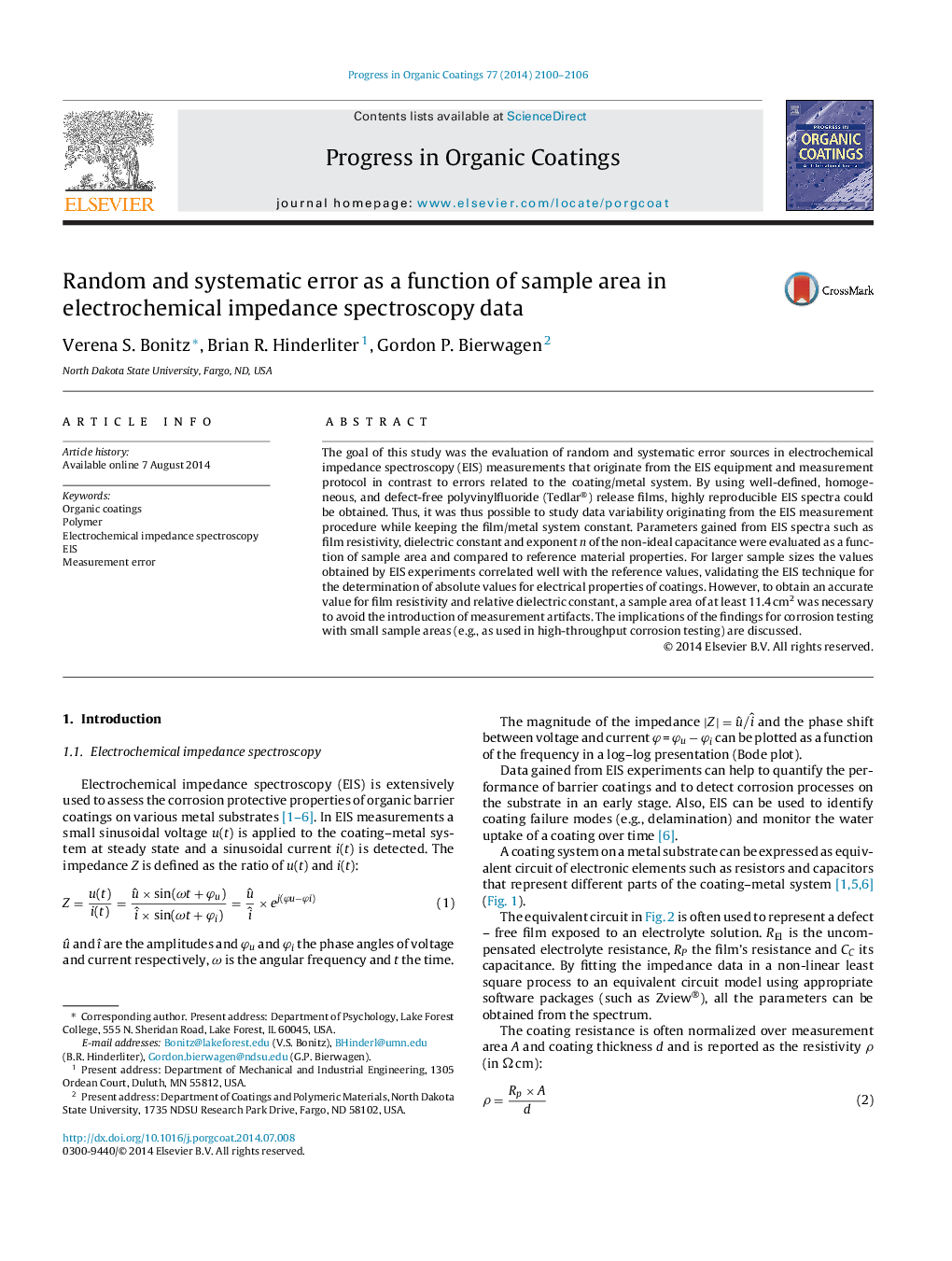| Article ID | Journal | Published Year | Pages | File Type |
|---|---|---|---|---|
| 692453 | Progress in Organic Coatings | 2014 | 7 Pages |
•Tedlar® model films can be used to study errors sources in EIS measurements.•Random error in the EIS data was larger for small sample areas.•The dielectric constant was systematically underestimated with smaller sample areas.•Review of random and systematic error sources in EIS data.
The goal of this study was the evaluation of random and systematic error sources in electrochemical impedance spectroscopy (EIS) measurements that originate from the EIS equipment and measurement protocol in contrast to errors related to the coating/metal system. By using well-defined, homogeneous, and defect-free polyvinylfluoride (Tedlar®) release films, highly reproducible EIS spectra could be obtained. Thus, it was thus possible to study data variability originating from the EIS measurement procedure while keeping the film/metal system constant. Parameters gained from EIS spectra such as film resistivity, dielectric constant and exponent n of the non-ideal capacitance were evaluated as a function of sample area and compared to reference material properties. For larger sample sizes the values obtained by EIS experiments correlated well with the reference values, validating the EIS technique for the determination of absolute values for electrical properties of coatings. However, to obtain an accurate value for film resistivity and relative dielectric constant, a sample area of at least 11.4 cm2 was necessary to avoid the introduction of measurement artifacts. The implications of the findings for corrosion testing with small sample areas (e.g., as used in high-throughput corrosion testing) are discussed.
